Despite the fact that marketing is becoming more and more technology-driven, the latest research on martech concludes that companies' exploitation of marketing technologies is declining. But, why? Are you a CMO? Learn how to leverage the capabilities of your martech tools.

We have previously discussed the growth of marketing technologies or martech market in this blog. However, despite the fact that the martech market continues to expand, and so does investment in martech by companies, new research from Gartner reveals that in 2022 marketing managers are using marketing technologies less than in previous years.
It seems that the martech landscape is going through a contradictory or, at the very least, peculiar moment.
Marketing managers know that they need marketing technologies to automate their tasks and processes, better understand customers, refine their strategies and increase their profit. Because they know it and are also aware that their competition is investing in martech, they are too. Thus, investment in martech continues to increase —CMOs say they allocate a quarter of their marketing budgets to martech— and so do martech providers. As new needs emerge, the market grows to satisfy them.
However, according to Gartner, CMOs are investing in technologies but not leveraging their capabilities.
Is the martech market moving faster than marketing itself?
We explore this phenomenon and the other marketing insights from the research in more detail below.
Martech landscape 2022: Is the martech market going faster than marketing?
Marketing teams only use 42% of the capabilities of their marketing technologies
According to the the Gartner report, marketers need marketing technologies now more than ever, they are investing more in it, but taking less advantage of its capabilities. In other words, marketers are underutilizing the martech technologies they buy.
As the customer journey and customer experience are positioned as priorities within marketing teams, martech technologies become more necessary, more likely to have a direct impact on the bottom line, and more likely to generate value from their capabilities.
And yet marketers are using only 42% of their capabilities, compared to 58% in 2020. Why is this happening?
This phenomenon can probably be explained by the fact that, while CMOs are aware of the need to invest in martech, many underestimate the need to train staff so that they can take advantage of these technologies.
On the other hand, according to marketing professionals themselves, the biggest challenges for harnessing martech technologies in 2022 are:
- Capability overlap between martech solutions
- Difficulty in recruiting talent to take advantage and leverage of these technologies
- Complexity of deployment of martech
The low levels of leveraging the capabilities of these types of technologies are of particular concern as, in turn, chief marketing officers or CMOs admit that they lack the ability to demonstrate that their martech investments are translating into better results, higher growth, increased lead scoring or the transformation of customer data into greater customer insight, for example.
The challenges acknowledged by marketers point to the fact that the core of the problem lies in the management of technology within the business ecosystem. It's not that technology doesn't work or doesn't have the right capabilities. Much less likely is it that marketers are incapable. The problem is that those responsible for managing technology adoption and deployment within the corporation are unable to implement a proper process of adaptation and correlation between technology, the legacy ecosystem and people.
If marketing teams do not begin to realize the potential of the technologies they are investing in, CMO's credibility may suffer. Senior leaders are confident that their CMO will be able to make good technology investment decisions and that the technologies being purchased will have a direct impact on their marketing results. However, this does not seem to be happening. The problem is not so much that CMOs are not making good technology investment decisions, it is that these investments are not being supported by adequate deployment, training and support strategies.
How to leverage martech capabilities?
As we have already mentioned, training and a good deployment and support strategy are essential for marketers to learn how to leverage the capabilities of the technologies they work with.
On the other hand, continuous measurement is a must to optimize the progressive use of martech tools. Beyond numbers and performance data, it is sometimes more efficient to directly ask marketers what problems they encounter when working with these technologies, what knowledge they need or what obstacles prevent them from making deeper use of the capabilities of these tools. This will allow the company's CMO to identify which training or deployment actions are a priority and on which type of resources it is most efficient to direct the investment.
After a marketing audit, CMOs need to create an action plan that includes a roadmap of actions and strategies to be implemented to optimize the use of the available marketing tools, as well as the direction in which future investments will be directed.
Need help deploying or leveraging your marketing technologies?




